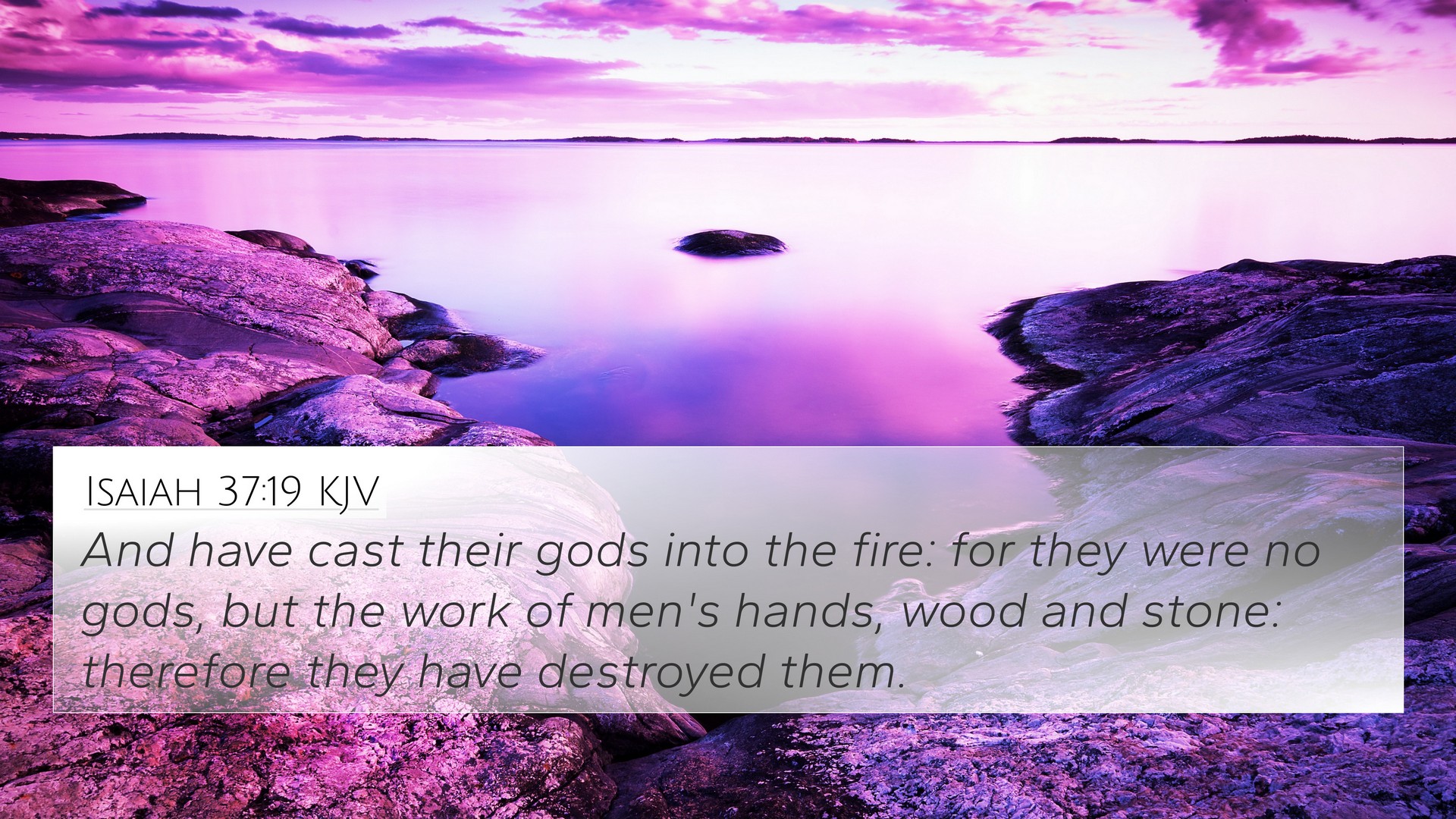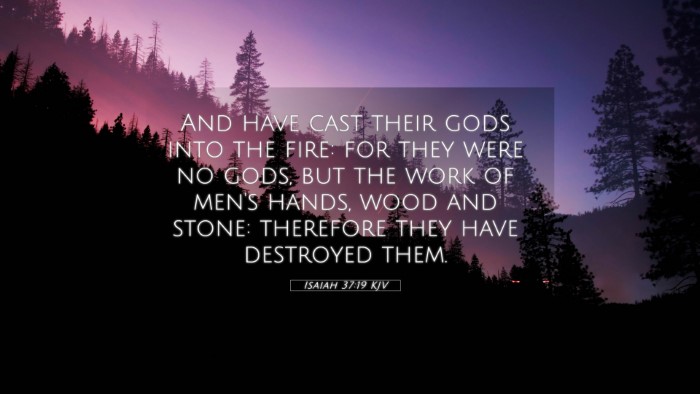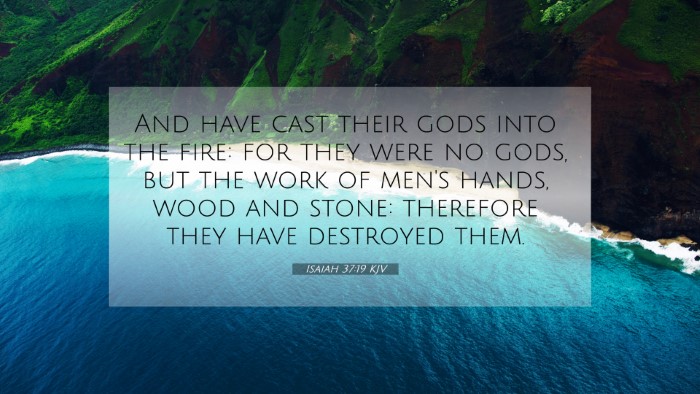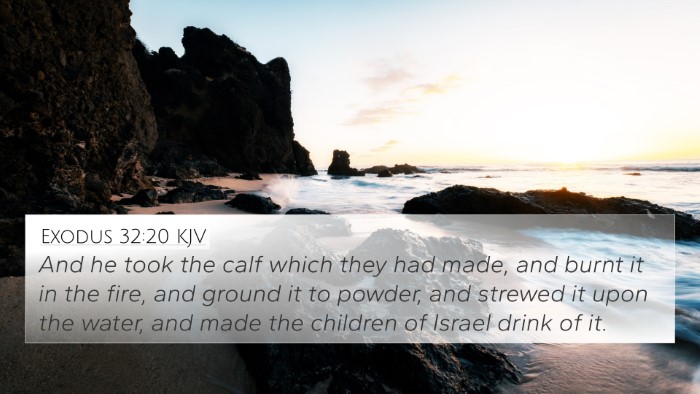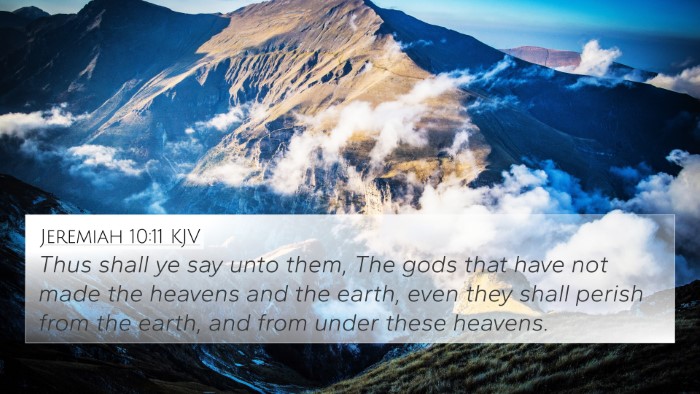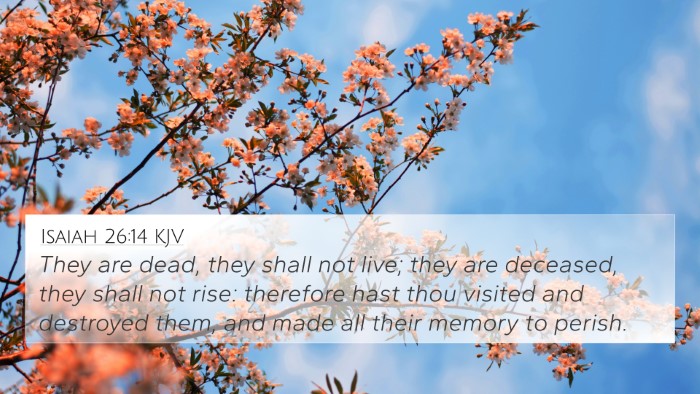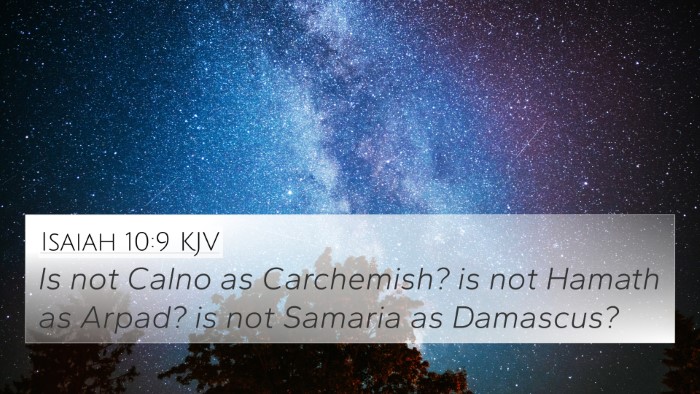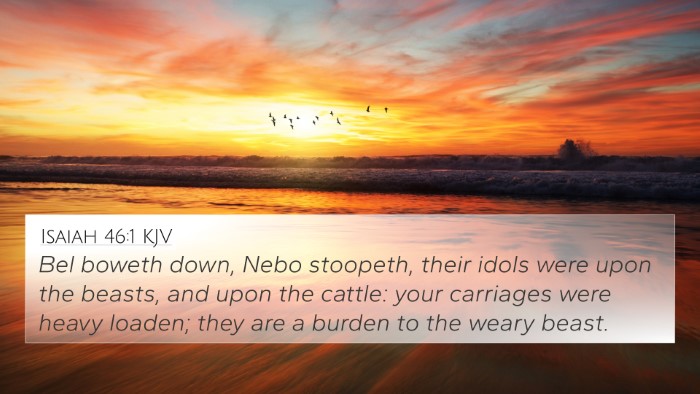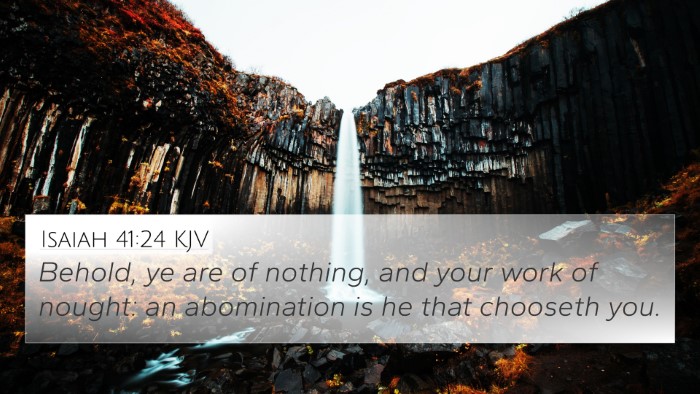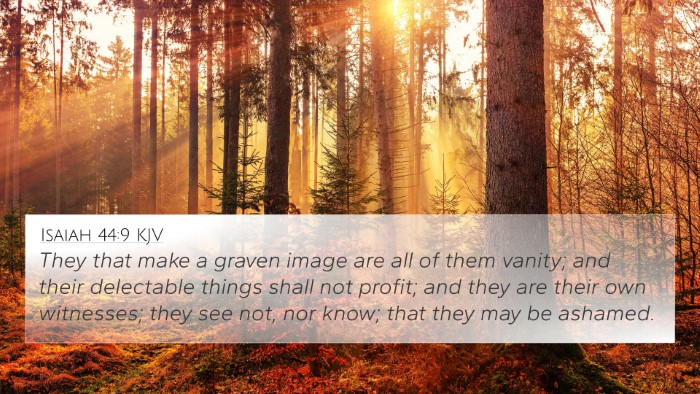Understanding Isaiah 37:19
Verse Reference: Isaiah 37:19
Text: "And have cast their gods into the fire; for they were no gods, but the work of men's hands, wood and stone: therefore they have destroyed them."
Summary and Explanation
This verse highlights the futility of idolatry and the power of God over false gods. It serves as a reminder that objects made by human hands cannot hold any divine power, and ultimately, they lead to destruction.
Commentary Insights
-
Matthew Henry:
Henry emphasizes that idols, crafted from wood and stone, lack the essence of deity. He points out that the destruction of these idols signifies the victory of the true God over falsehood and the might of His arm. People are often tempted to rely on things that are powerless, and this verse serves as a lesson on where to place true faith.
-
Albert Barnes:
Barnes notes that the gods mentioned were the deities of the Assyrians whom they worshipped. Their destruction signifies not only the powerlessness of these idols but also the superiority of the Lord. This verse confronts the tendency of different cultures to create gods in their own image rather than recognizing the sovereignty of the one true God.
-
Adam Clarke:
Clarke explains that the reference to gods being cast into fire illustrates God's ultimate judgment. He connects this act of destruction with the broader theme of divine retribution against those who oppose Him. Clarke highlights that the 'work of men's hands' is a futile endeavor when compared to divine realities.
Cross-References
Isaiah 37:19 can be cross-referenced with the following scriptures to provide further context and understanding:
- Exodus 20:3-6: Discusses the commandment against idolatry.
- Psalm 115:4-8: A critique of idols and their ineffectiveness.
- Jeremiah 10:3-5: Explains the futility of worshipping made objects.
- Isaiah 44:9-20: A robust description of the absurdity of idolatry.
- 1 Corinthians 10:19-20: Paul’s acknowledgment of the spiritual significance of idols.
- Acts 19:26: A reference to the power of the gospel over idolatry.
- Revelation 21:8: The ultimate fate of idolaters.
Thematic Connections
This verse illustrates key themes regarding:
- The Nature of God: The verse exposes the limits of human creativity in comparison to God's infinite power.
- The Failure of Idolatry: It addresses the dangers of relying on man-made beliefs and traditions.
- Divine Judgment: This serves as a warning that all falsehood will ultimately be judged by God.
Links to Other Scriptures
Exploring Bible verse cross-references in this context allows for identifying connections between various passages that address similar themes:
- Consider Romans 1:22-23, which reflects on the consequences of exchanging the truth of God for a lie.
- The Book of Isaiah itself discusses idolatry extensively, providing parallels in its many chapters.
- Matthew 4:10 includes Jesus's confrontation of idolatry during His temptation in the wilderness.
Tools for Bible Cross-Referencing
When studying verses like Isaiah 37:19, utilizing tools for cross-referencing can enhance understanding:
- Bible concordance: Look up key terms and their occurrences throughout scripture.
- Cross-reference guide: Use annotated Bibles that include cross-references.
- Comprehensive Bible cross-reference materials: Resources that catalog themes and related scriptures.
How to Use Bible Cross-References
Cross-referencing can be a fruitful practice:
- Identify connections between Bible verses that expand on the themes found in Isaiah 37:19.
- Engage in a Bible cross-reference study to deepen understanding of biblical contexts and teachings.
- Utilize a Bible reference resource to explore thematic variations in scriptures.
Conclusion
In summary, Isaiah 37:19 serves as a powerful reminder of the futility of human-made gods and illustrates the essence of true faith in the Almighty. The insights from various commentaries reaffirm its message while cross-referencing this verse with others enhances our understanding of the consistent themes throughout the Bible.
